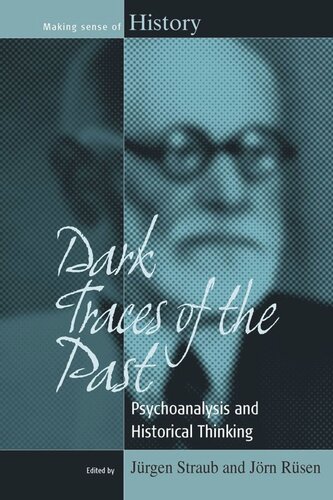

Most ebook files are in PDF format, so you can easily read them using various software such as Foxit Reader or directly on the Google Chrome browser.
Some ebook files are released by publishers in other formats such as .awz, .mobi, .epub, .fb2, etc. You may need to install specific software to read these formats on mobile/PC, such as Calibre.
Please read the tutorial at this link: https://ebookbell.com/faq
We offer FREE conversion to the popular formats you request; however, this may take some time. Therefore, right after payment, please email us, and we will try to provide the service as quickly as possible.
For some exceptional file formats or broken links (if any), please refrain from opening any disputes. Instead, email us first, and we will try to assist within a maximum of 6 hours.
EbookBell Team

0.0
0 reviewsThe relationship between historical studies and psychoanalysis remains an open debate that is full of tension, in both a positive and a negative sense. In particular, the following question has not been answered satisfactorily: what distinguishes a psychoanalytically oriented study of historical realities from a historical psychoanalysis? Skepticism and fear of collaboration dominate on both sides. Initiating a productive dialogue between historical studies and psychoanalysis seems to be plagued by ignorance and, at times, a sense of helplessness. Interdisciplinary collaborations are rare. Empirical research, formulation of theory, and the development of methods are essentially carried out within the conventional disciplinary boundaries. This volume undertakes to overcome these limitations by combining psychoanalytical and historical perspectives and thus exploring the underlying “unconscious” dimensions and by informing academic and nonacademic forms of historical memory. Moreover, it puts special emphasis on transgenerational forms of remembrance, on the notion of trauma as a key concept in this field, and on case studies that point the way to further research.